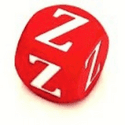
Today, almost every company uses customer relationship management (CRM) software in their sales and marketing operations. CRM software can handle every customer interaction, from tracking the progress of a sale to tracing a lead.
One of the most important advantages of CRM software is that the information stored in the system is available to the entire organization. A CRM tool not only tracks customer journeys but also helps users understand the customer better. The collected data is used by marketing teams to run contextual campaigns, increase traffic, and scale the business. Personalization and custom marketing can help businesses cultivate customer relationships.
Zoho Sign + Zoho CRM
The company's flagship customer relationship management application is Zoho CRM. You can send documents for signature directly from the application to any contact in your CRM using the Zoho Sign extension for Zoho CRM. This also applies to other Zoho CRM features, such as mail merge and inventory templates, which allow you to send out customized documents for signature using CRM data.
- Mail merge templates can be used to send the same documents to multiple customers with different names and addresses.
- Inventory templates enable you to send quotes and sales orders for signature to various vendors.
- Personalize your documents by including logos, images, copyright symbols, and email addresses.
- Create personalized templates that you can reuse to save time and effort.
- Create a document with multiple signature slots and send it to multiple recipients at the same time.
- Create workflows to send documents on a set date. Establish the approval process and conditions.
Zoho Sign + Vtiger CRM
- Create workflows to send documents on a set date.
- Establish the approval process and conditions.
- Keep track of your documents at each stage and monitor the approval process.
- Email yourself backup copies of the documents and save them.
Zoho CRM + Pipedrive
- Send a Zoho Sign template to a Pipedrive deal, contact, or organization's email address.
- Upload documents to Zoho Sign from Pipedrive.
- The Pipedrive panel allows you to keep track of the status of documents.
Zoho Sign + HubSpot
Frequently Asked Questions
How do you safeguard a digital signature?
Digital signatures can be safeguarded by using strong encryption techniques, secure storage of private keys, and two-factor authentication. However, specifics might vary depending on the technology or service provider used.
What is a digital signature and why is it necessary in e-commerce?
A digital signature is an electronic form of authentication that validates the integrity and authenticity of a digital message or document. It's crucial in e-commerce as it helps secure transactions, reduce fraud, and enhance trust between parties involved.
What is the difference between an electronic signature and a digital signature?
An electronic signature is a general term that refers to any electronic process that indicates acceptance of an agreement or a record. A digital signature, a type of electronic signature, uses cryptographic mechanisms to secure the data associated with the signed document, providing higher levels of security and authenticity.
What is an example of a digital signature in e-commerce?
In e-commerce, a digital signature might be used when a customer signs a digital receipt or agreement to terms of service during an online transaction, or when businesses sign agreements with suppliers or vendors.
How do I create a digital signature for e-commerce?
Creating a digital signature for e-commerce usually involves using a software or service provider that offers digital signature solutions. This often requires generating a public-private key pair, and the private key is used to create the digital signature. Always ensure to follow the provider's specific instructions.
What are the three types of Digital Signatures?
The three types of digital signatures are: 1) Simple Digital Signatures: Basic form of digital signatures that provide the least security. 2) Advanced Digital Signatures: They are linked to the identity of the signer and ensure the original content hasn't been tampered with. 3) Qualified Digital Signatures: These provide the highest level of security and legal compliance, and are created using a secure signature-creation device.
How do I create a digital signature?
Creating a digital signature often requires the use of a digital signature software or service provider. The process typically involves creating a digital certificate and a public-private key pair. The private key is used to create the digital signature and the public key is used to verify it. Ensure to follow the specific instructions provided by your chosen software or service.
What is a digital signature and how does it work?
A digital signature is an encrypted value that is appended to a message to assure the integrity and authenticity of the message. It works by using a mathematical algorithm to generate two keys (a private key for signing and a public key for verifying the signature). When a document is digitally signed, the signature is created using the signer's private key. Anyone who has access to the signer's public key can then verify the authenticity of the document.
What is an example of a digital signature algorithm?
One commonly used digital signature algorithm is the RSA (Rivest–Shamir–Adleman) algorithm. It is based on the computational difficulty of factoring large integers that are the product of two large prime numbers. Other examples include the DSA (Digital Signature Algorithm), and the Elliptic Curve Digital Signature Algorithm (ECDSA).
